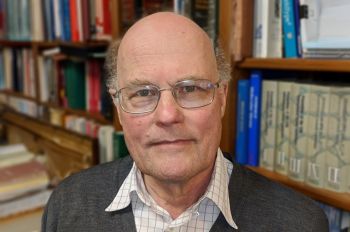Illinois Tech Offers Radiochemistry Track in Health Physics Master’s Program
Signs MOU with University of Missouri for Radiochemistry Laboratory Course At Missouri Research Reactor (MURR)
Chicago, IL – September 28, 2017 – Illinois Institute of Technology will offer a radiochemistry track in its well-regarded Master of Health Physics program beginning in fall 2018 and will accept applications for the track starting on October 1, 2017.
The university recently signed a memorandum of understanding with the University of Missouri, Columbia, that will enable radiochemistry-track students to take a one-week radiochemistry laboratory at the Missouri University Research Reactor (MURR). MURR is a 10-megawatt facility and the most powerful nuclear research reactor at a U.S. university. The course at MURR will provide students with hands-on experience in handling, detecting, and analyzing radioactive materials.
Signees of the MOU were S.Y. Chen, Ph.D., CHP, director of the health physics program at Illinois Tech; Grant Bunker, chair and professor of physics at Illinois Tech; William Miller, professor emeritus of nuclear engineering, University of Missouri; and J. David Roberson, MURR associate director for research and education.
Started in 1997, the Master of Health Physics program at Illinois Tech is a non-thesis degree program designed for working professionals and people in the military, with most courses available online. Instructors are nationally renowned experts with decades of experience. An advisory board of professionals helps guide the curriculum.
Chen himself has 30 years of experience in the field, including senior positions at Argonne National Laboratory. He was a member of the National Council on Radiation Protection and Measurements and of the EPA Science Advisory Board/Radiation Advisory Committee. He is a longstanding member of both the Health Physics Society and the American Nuclear Society.
Radiochemistry is the academic field for studying the chemical properties and processes of radioactive materials. In the United States, a large segment of radiochemists in the workforce is reaching retirement age, and not enough people are being trained to fill their spots.
“Cold War-era scientists are retiring,” said Chen. “It is crucial to educate new health physicists focused on radiochemistry in order to meet the nation’s needs.”
Both the NCRP and National Academy of Science have expressed concern about the coming shortfall of radiochemists. NAS reported, “The growing use of nuclear medicine, the potential expansion of nuclear power generation, and the urgent needs to protect the nation against external nuclear threats…require a substantial, highly trained, and exceptionally talented workforce.”
Currently, only a handful of U.S. universities offer radiochemistry as a field of study, and most programs are not designed with online courses for professionals and those serving in the military.
Interested students can apply to Illinois Tech’s Graduate Admission Office (www.iit.edu/admissions-aid/apply), or call 312-567-3020, or (toll-free in the U.S. and Canada) 866-GRAD-IIT (866-472-3448).
Announcing the radiochemistry specialization at the Annual Health Physics Society Meeting in Raleigh, NC, July 2017, are, from left to right: alumnus Patrick Haan (’17), program director SY Chen, and current students Erin Evans and John Edwards.
ABOUT ILLINOIS INSTITUTE OF TECHNOLOGY
Illinois Institute of Technology, also known as Illinois Tech, is a private, technology-focused research university located in Chicago offering undergraduate and graduate degrees in engineering, science, architecture, business, design, human sciences, applied technology, and law. One of 21 institutions that comprise the Association of Independent Technological Universities (AITU), Illinois Tech offers exceptional preparation for professions that require technological sophistication, an innovative mindset, and an entrepreneurial spirit.




